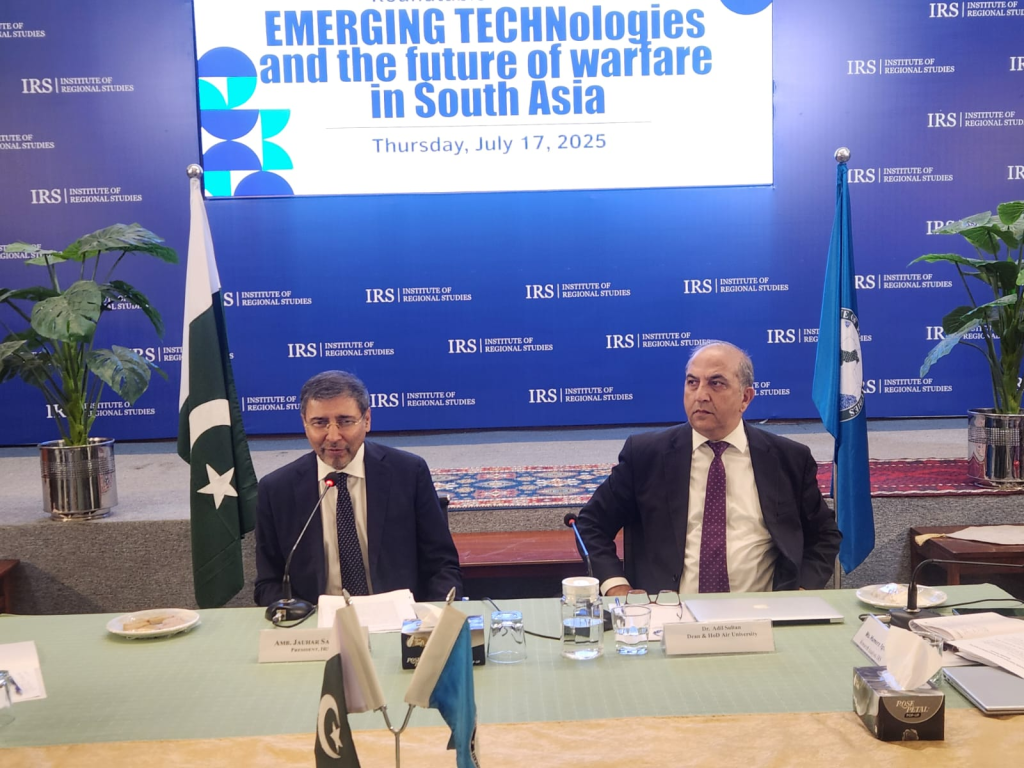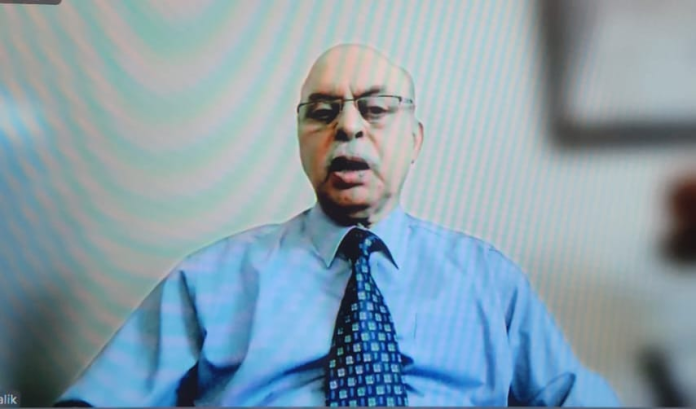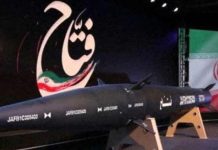ISLAMABAD, JULY 23 (DNA): At a discussion hosted by the Institute of Regional Studies (IRS), Amb Jauhar Saleem, the President of IRS, emphasized the critical importance of addressing ongoing regional political disputes in light of emerging and potentially destructive technologies. He cautioned that mismanaged regional disputes, especially Kashmir, combined with increased military technology, could escalate conflicts to catastrophic levels. He stressed the urgency of taking action now to prevent such a scenario. Amb. Saleem praised Pakistan for its timely and effective response during the recent conflict with India, despite a significant disparity in defense budgets.
Dr. Naeem Salik, Executive Director of the Strategic Vision Institute (SVI), emphasized the impact of evolving technologies on non-contact warfare between India and Pakistan. He stated that future conflicts would likely be brief, characterized by standoff weapon exchanges, which would challenge traditional nuclear deterrence and strategic stability concepts. An arms race is expected, driven by both conventional weapons and new technology acquisition methods. Consequently, the risk of accidental escalation is high, necessitating a focus on developing counter-drone weapons for effective warfare. Dr. Salik urged Pakistan to invest heavily in modern technologies to compete with advanced countries in this complex future.

Dr. Adil Sultan, Dean of Faculty of Aerospace and Strategic Studies at Air University, highlighted the potential for advanced technologies to make conventional wars in the unresolved Jammu and Kashmir dispute more devastating and fundamentally different. He added that the imbalance in South Asia is growing due to India’s access to the modern and sophisticated technologies from around the world. He believed that the recent conflict unequivocally demonstrated China’s leading position in sophisticated technologies and its role as a key defensive support for Pakistan. ‘The conflict proved that despite India’s huge resources it failed in achieving its military objectives. Pakistan’s befitting response, termed as the quid pro quo plus, changed the entire geostrategic scenario, the ramifications of which are still being felt’, he emphasized.
In his presentation, he highlighted the importance of institutional focus on rapidly advancing technologies like quantum computing, AI, cyberspace, and integrated drones, which are crucial for enhancing the efficiency and decision-making capabilities of future military systems. While discussing the challenges of these emerging advanced technologies, Dr. Sultan stressed on their disruptive nature as well especially if in the hands of nonstate actors and adversary’s exploitive grasp once artificial intelligence and cyber syndicates, leading towards minimum human involvement in future wars. ‘The incorporating of cyber quantum technology into defensive capabilities transforms the second-strike concept, he said adding that, Pakistan should invest in commercially available drones to achieve future military expertise.

















